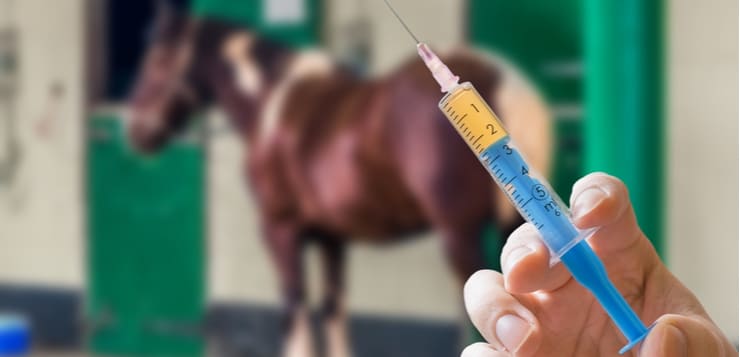Saturday’s Kentucky Derby will be run without any horses allowed to use the performance-enhancing Lasix drug, and that will be the case in Pennsylvania after June 1 for all Graded Stakes Races and races involving 2-year-old thoroughbreds.
The Pennsylvania Horse Racing Commission voted Tuesday to ban the controversial drug for the younger horses and for those in higher-level races at the state’s three thoroughbred tracks.
The decision came despite the objections of some horsemen’s groups, who asked for either a delay or to avoid a ban altogether, as potentially harmful instead of helpful to the health of horses.
Commission members, however, took note of how outlawing use of Lasix on race days has become an increasing trend, including for the Triple Crown races, Breeders’ Cup, and in states around Pennsylvania with top reputations in the racing industry, including Maryland and New York.
“The major states in the country are moving in this direction. … I believe that we need to be a major state in the horse racing business, not a minor state,” commission member Russell Jones said during the meeting held by phone conference call. “I don’t think we want to put ourselves in the position of being a lightweight.”
Lasix has been a long-running debate
Use of Lasix has been debated for years in the industry. On the one hand, it can be effective in preventing bleeding from the lungs in racehorses, but it also increases the risk of serious fractures and fatalities — particularly in young thoroughbreds. (The ban in Pennsylvania and elsewhere does not apply to harness racing, as standardbreds are not similarly impacted by the drug.)
Aside from those medical issues, the drug is a diuretic known to reduce weight and improve speeds, which many critics say is actually the primary reason it is used in the vast majority of thoroughbreds that race in the U.S. (Lasix is widely banned in racing in other countries.)
The Horseracing Integrity and Safety Act passed by Congress in December 2020 declared that Lasix-free racing would become the general standard in July 2022. While supported by a good part of horse industry, the act is also under legal attack from others within it, including the National Horsemen’s Benevolent & Protective Association.
The executive director of the Pennsylvania affiliate of that group, which oversees racing at the Penn National and Presque Isle Downs tracks, spoke against the ban prior to Tuesday’s commission vote.
The association’s Todd Mostoller said there is no actual national standard pertaining to Lasix outside of the new federal legislation, and the possibility that law could be declared unconstitutional from a court fight sends Pennsylvania down the wrong path in banning the drug now.
“I don’t know why we would be taking action in the commonwealth of Pennsylvania as to something that is not in the best interest of the horse,” said Mostoller, whose group insists there are instances when protection from bleeding outweighs the other concerns about the drug.
Uniformity ended up the deciding issue
Some other industry representatives also sought, at the very least, a postponement of the ban to assess the outcome of national litigation or how the ban affects racing in other states. Ultimately, however, there were no dissenting votes when the commission took action.
“I’ve heard from horsemen that uniformity among states is very important to them, and since we see this going in that direction throughout the country, I will be voting for it for only that reason,” said commissioner Edward Rogers.
The ban could have more impact at Parx than the state’s other two thoroughbred tracks, as it runs more of the caliber of stakes races that attract horses that would also be competing in other states with similar bans.
Joe Wilson, the director of racing at Parx, said the track had already been planning this year to run the stakes races without Lasix permitted, based on indications the commission was moving toward the ban.
Parx and other tracks around the state, including the three harness racing venues, are expecting sizable attendance for betting on and telecasts of Saturday’s Kentucky Derby. Racing directors noted the crowds will not be as big as in pre-COVID days, due to some social distancing guidelines still in effect, but they will still be larger than for the last Kentucky Derby, when crowds were actively discouraged.
“We’re not doing quite as much as we would like, because of the restrictions, but we’re hoping for a much better Derby than we had last September,” said Barry Brown, racing director at Harrah’s Philadelphia.






